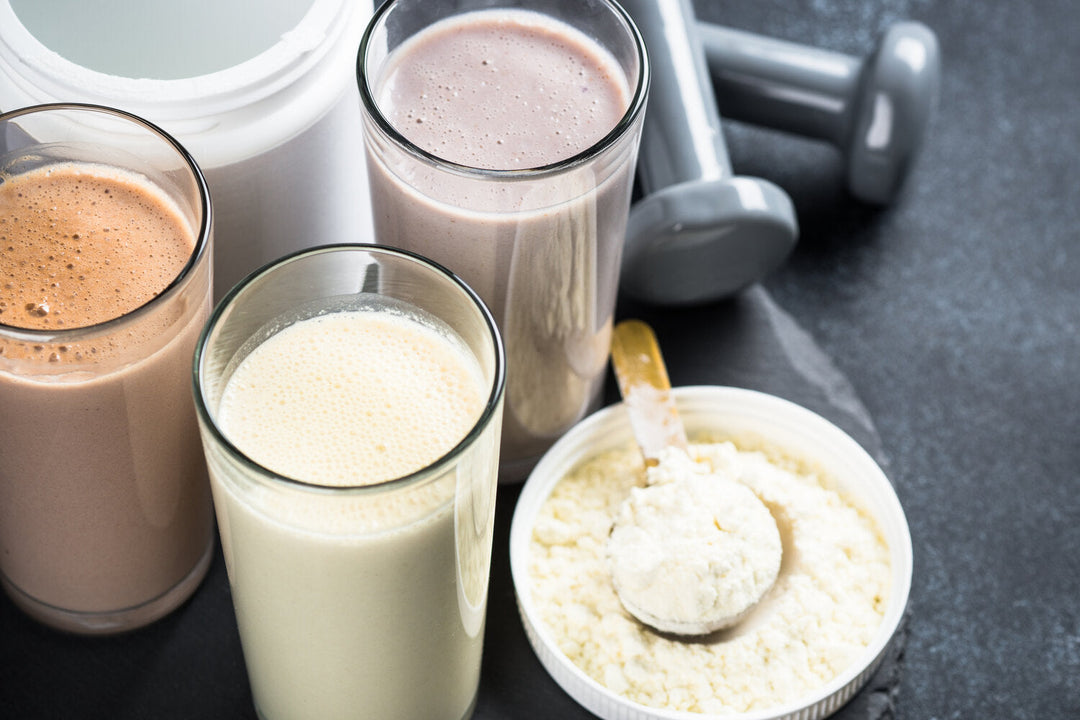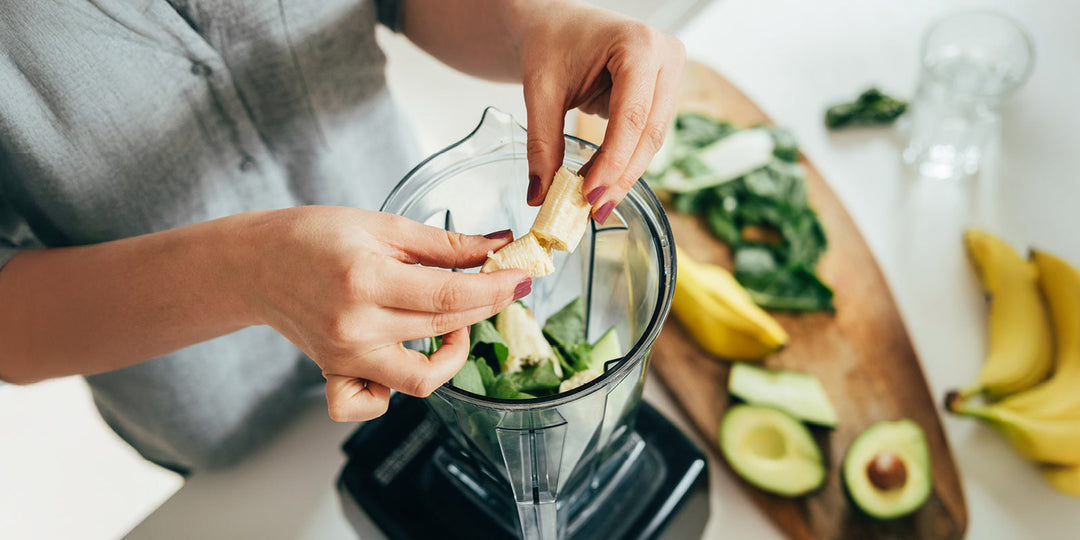Whey Isolate vs. Whey Protein
When it comes to choosing a protein powder, one of the biggest questions you might face is: whey isolate vs. whey protein—which one is right for you?
At Unjury®, we understand that protein is vital for supporting recovery from surgery, promoting healthy aging, and assisting with wound care.*
To help you make an informed decision, let's break down the differences between these two popular protein options and explore which might best suit your needs.
What this article covers:- About Whey and Whey Isolate
- Nutritional Breakdown: Whey Isolate vs. Whey Protein Concentrate
- Health Benefits of Whey Protein Isolate and Concentrate
- Lactose and Allergen Considerations
- Which One Is Better?
- Practical Uses and Mixing Tips
- References
About Whey and Whey Isolate
Whey protein is derived from milk as a byproduct of cheese production. It's a complete protein, meaning it contains all nine essential amino acids that our bodies need.
But not all whey is created equal. There are two primary forms: whey protein concentrate and whey protein isolate. The difference lies mainly in their filtering and refinement.
Whey protein concentrate is the less filtered option, retaining a bit more fat, lactose, and carbohydrates, whereas whey isolate undergoes additional filtration to remove most of the lactose and fat, offering a higher protein content per serving.
Nutritional Breakdown: Whey Isolate vs. Whey Protein Concentrate
When comparing whey protein concentrate to whey protein isolate, the protein content becomes the most significant factor.
Whey isolate has a protein concentration of 90% or higher protein, while whey concentrate has approximately 70-80% protein concentration.¹
This makes whey isolate a great choice for those who want the maximum protein per gram, minimizing carbs, fat, and total calories. Whey concentrate offers a broader nutrient profile that includes small amounts of fat and carbohydrates.
Both forms of whey protein support muscle recovery and help maintain lean body mass, but if you're looking to get the most protein with the least extras, whey isolate is the way to go.²*
Health Benefits of Whey Protein Isolate and Concentrate
Whey protein isolate and whey protein concentrate provide similar benefits, like supporting muscle maintenance and promoting overall recovery.²*
However, the higher protein content of whey isolate may provide a slight edge in certain situations, especially for those needing protein for specific health purposes, like recovering from surgery.
It is evident that both types of whey protein support muscle health and can be part of a balanced recovery plan, but whey isolate can be particularly helpful for individuals with certain dietary restrictions.*
Additionally, as a complete protein, whey is an excellent choice when compared to other protein sources. It provides a broader spectrum of amino acids than most plant protein sources.
For example, whey protein vs. pea protein shows that whey offers a higher bioavailability, which may help with faster muscle recovery and tissue repair.*
Lactose and Allergen Considerations
Lactose sensitivity is common, so knowing which whey protein to choose matters. Because of the extra filtration process, whey isolate contains less lactose than whey concentrate, making it a suitable choice for those with lactose intolerance.
However, if you have a milk allergy, it's essential to remember that both types of whey are derived from milk and may still cause reactions.
Whey isolate's reduced lactose content doesn't necessarily make it safe for individuals with a milk allergy, so always consult with your healthcare provider before making a decision.³

Which One Is Better?
The answer to this question depends on your needs. Whey isolate provides more protein per serving and less lactose, making it ideal for those seeking maximum protein content or with lactose sensitivity.
On the other hand, whey protein concentrate is a more affordable option with a well-rounded nutrient profile, which could be a better fit for those who do not need such a high protein concentration.
Plant protein vs. whey is also a common question for those with dietary preferences or restrictions.
While whey is excellent for supporting recovery and muscle health, plant proteins can also be beneficial, though they often lack some of the essential amino acids found in whey.*
Practical Uses and Mixing Tips
When it comes to mixing, both types of whey are versatile. Whey protein concentrate and whey protein isolate can be mixed with water or milk or incorporated into smoothies for a protein boost.
Whey isolate's finer texture often makes it easier to mix without clumping, so it might be the better choice for those on the go.
For those focusing on surgery recovery, we recommend adding whey isolate to your meals and shakes to ensure you're meeting your protein goals without adding extra fats or carbohydrates.
Conclusion
At Unjury, we believe that choosing the right protein can significantly impact your health journey.
Whey isolate versus whey protein is an important comparison, especially for those seeking high-quality protein to support recovery, healthy aging, and general wellness.*
While both options offer incredible benefits, whey isolate may be the better choice if you want higher protein content with fewer additional nutrients like lactose and fat.
Ready to take the next step in your recovery journey? Visit Unjury to explore our range of protein powders that cater to your unique needs.
References
- Healthline. (2018). Whey Protein Isolate vs Concentrate: What's The Difference? Retrieved from https://www.healthline.com/nutrition/whey-protein-isolate-vs-concentrate
- Goulding DA et al. Expression to Food. 2020:21-98.
- Arentson-Lantz EJ et al. J Anim Sci. 2021;99(4):skab060.
- Silanikove N et al. Nutrients. 2015;7(9):7312-31.
If you want to learn more, why not check out these articles below:
- Complete vs. Incomplete Proteins
- Plant Protein vs. Animal Protein
- Collagen vs. Whey Protein
- Casein vs. Whey Protein
- How to Add More Protein to Diet
- Does Protein Make You Feel Full?
- When to Eat Protein Bars
- How Much Protein Should an Athlete Eat?
- What Is the Best Protein Powder for Weight Loss?*
- Best Protein Powder for Women’s Weight Loss*
- Best Protein Powder for Menopause Weight Loss*
- Best Chocolate Protein Powder for Weight Loss
- Best Protein Powder for Weight Watchers®
- How to Add Protein to Salad
- Why Am I Craving Protein?
*These statements have not been evaluated by the Food and Drug Administration (FDA). These products are not intended to diagnose, treat, cure, or prevent any disease.











